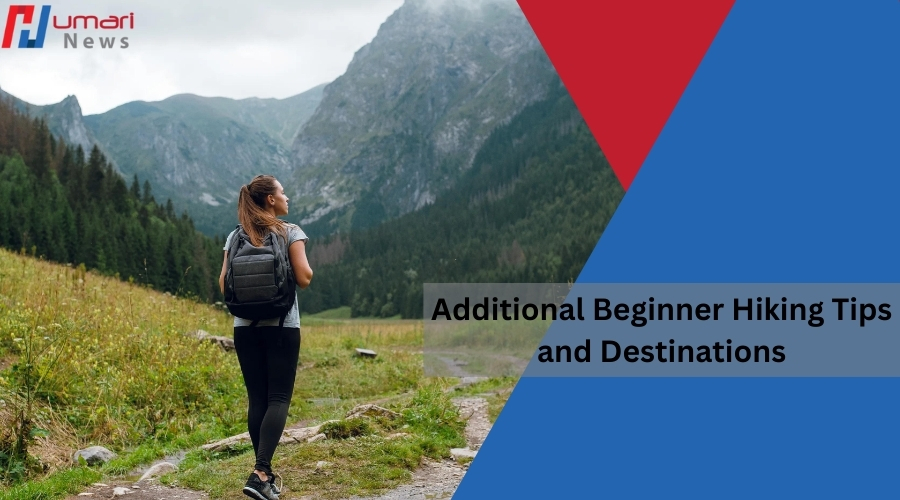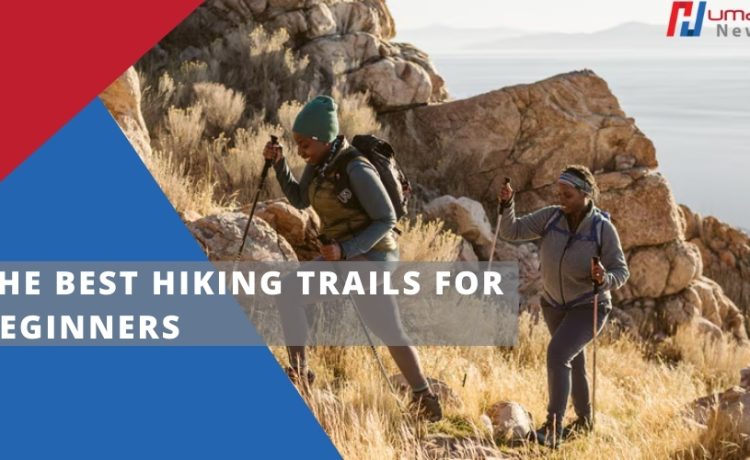Here are some of the best hiking trails for beginners to explore:
1. Emerald Bay State Park, California

Located on the stunning Lake Tahoe, Emerald Bay State Park offers several easy to moderate hiking trails. The Rubicon Trail is a popular choice, offering breathtaking views of the lake and surrounding mountains. This trail is perfect for beginners as it is well-maintained and offers a gradual incline.
2. Acadia National Park, Maine
Acadia National Park is a hiker’s paradise, with a variety of trails to suit all fitness levels. For beginners, the Jordan Pond Trail is an excellent option. This gentle hike takes you around the picturesque Jordan Pond, offering stunning views of the surrounding mountains.
3. Great Smoky Mountains National Park, Tennessee and North Carolina
This national park boasts a diverse range of trails, making it a great choice for hikers of all abilities. The Clingmans Dome Road offers a scenic drive to the highest point in the park, where you can enjoy stunning panoramic views without the strenuous hike.
4. Zion National Park, Utah
While Zion is known for its challenging hikes, it also offers several beginner-friendly trails. The Riverside Walk is a paved path that follows the Virgin River, offering stunning views of the canyon walls. This trail is perfect for those looking for a leisurely stroll.
5. Rocky Mountain National Park, Colorado
This iconic national park offers breathtaking scenery and a variety of hiking trails. For beginners, the Bear Lake Trail is a popular choice. This relatively easy hike takes you to the stunning Bear Lake, surrounded by towering peaks.
Essential Tips for Beginner Hikers
- Start slow: Begin with shorter and easier hikes to build your endurance.
- Proper footwear: Invest in a good pair of hiking boots or shoes with good support.
- Pack essentials: Bring water, snacks, sunscreen, and a first-aid kit.
- Layer your clothing: The weather can change quickly, so it’s important to dress in layers.
- Inform someone of your plans: Let someone know where you’re going and when you expect to return.
- Respect nature: Leave no trace and follow trail etiquette.
Additional Beginner Hiking Tips and Destinations

Essential Gear for Beginner Hikers
While you don’t need a ton of gear to start hiking, having the right equipment can make your experience more comfortable and enjoyable. Here are some essentials:
- Hiking backpack: Choose a backpack that fits your body and can comfortably carry your essentials.
- Hiking boots or shoes: Invest in good quality footwear with proper support and traction.
- Water bottle: Stay hydrated by bringing plenty of water.
- Snacks: Pack energy-boosting snacks like granola bars, trail mix, or nuts.
- Sunscreen and hat: Protect yourself from the sun.
- First-aid kit: A basic first-aid kit can come in handy for minor injuries.
- Map and compass (or GPS): While many people rely on their phones, it’s always a good idea to have a backup.
Safety First
Hiking can be a rewarding experience, but it’s essential to prioritize safety. Here are some additional safety tips:
- Check weather conditions: Be aware of the forecast and dress accordingly.
- Hike with a buddy: It’s always safer to hike with a friend.
- Be aware of wildlife: Learn about the wildlife in the area and how to safely encounter them.
- Pace yourself: Avoid overexerting yourself, especially when starting out.
- Listen to your body: If you’re feeling unwell or experiencing pain, stop and rest.
Conclusion
Hiking is a rewarding activity that can be enjoyed by people of all ages and fitness levels. By choosing beginner-friendly trails and following these essential tips, you can safely explore the great outdoors and discover the joys of hiking. Remember to start slow, listen to your body, and most importantly, have fun!







